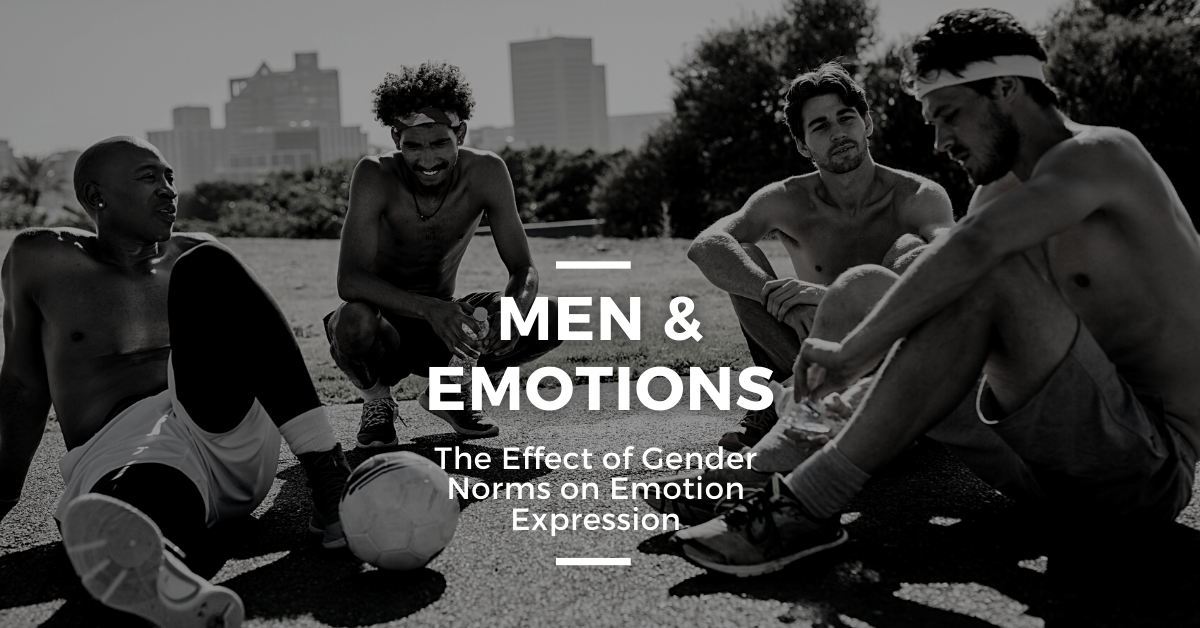You might be familiar with the concept of gender norms and stereotypes. They’ve existed for generations, and in many ways, they control our world. Some examples of gender norms include the expectation that women are the ones to do housework like dishes and laundry, while men do the manual labor like mowing the lawn and fixing the clogged toilet.
One gender stereotype that largely impacts how we behave is the idea that women are sensitive beings, allowing them to openly express their emotions, and that men are strong and brave, meaning that sharing their emotions makes them “weak.” This gender stereotype has led to an incredibly unhealthy social standard that men should keep their emotions in. It’s even seen in some of the language we use such as “Real men don’t cry, or “Man up,” or “Don’t be a softie.”
However, just because we have this stereotype that men shouldn’t express emotions, it doesn’t mean that men don’t experience emotions. Research has proven that men feel just as many emotions as women. The only difference is that men are much more likely to suppress these emotions, while women are more likely to verbalize them.
So what’s the big deal? Our bodies have natural reactions to our emotions. When we feel happy, our bodies want to react by smiling. When we’re mad and angry, our bodies get tense. When we’re sad, our body’s natural reaction is to cry. But when men feel that they aren’t allowed to cry and therefore suppress these feelings of sadness, it can lead to mental health disorders such as anxiety and depression. It can also lead to unhealthy patterns of dealing with emotions such as expressing it through anger and violence or turning to substance abuse for relief.
Additionally, these behaviors can lead to suicide if not treated. In 2019, 70% of suicides were men, and it’s important to note that there is a correlation between this statistic and the patterns of emotion suppression. When people suppress their emotions, it gets to a point where they feel like they just can’t take it anymore, and thoughts of suicide start to seem like an easier option.
Becoming comfortable sharing emotions is crucial if we want to avoid these issues of mental health. Vulnerability isn’t easy, but it can save lives. Talking to someone about how we’re feeling makes us feel less alone and allows us to go through the hard times with someone else’s support. If you’re feeling like you have a tendency to hold your emotions in, this week maybe you can try breaking that barrier. When you’re feeling sad, tell someone. If someone makes you upset, tell them. The more we get comfortable sharing our emotions, the easier it will become.
By Lexi Breunig

